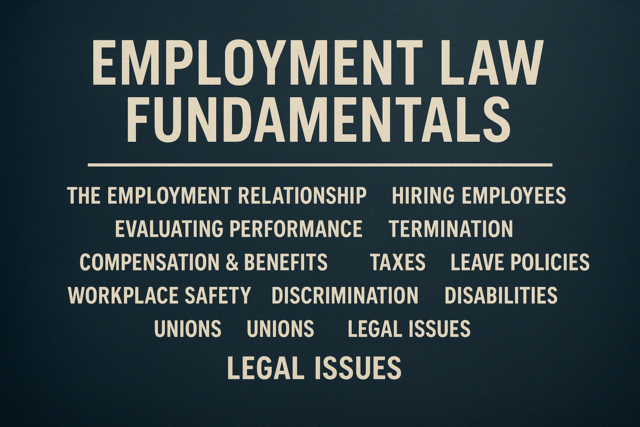Nowhere are the rules of etiquette more important than in the workplace. In a social setting, breaking the rules may embarrass you momentarily, but it is usually forgiven and forgotten fairly quickly. If you repeatedly ignore the rules of etiquette at work, however, your superiors will notice and your chances of promotion will suffer. You will be seen as someone who cannot represent the company well and does not have the finesse and appropriate conduct for business meetings, social situations, and other events that involve business executives. Understanding the etiquette of the business world is essential to climbing the ladder of success.
What Is Business Etiquette?
Business etiquette encompasses everything from how we treat our work associates to meriting the trust of our superiors. It involves how we treat those who work for us, our clients and customers, and how we handle ourselves, both socially and in the office. Making others feel comfortable is a key component of business etiquette, as is having the kind of polish and diplomacy to show that you can and will be taken seriously and respected by others. You will sometimes hear executives and human resource managers refer to "people skills"; many of these skills are founded on courtesy and respect for those around you.
� Keep in mind that business is still about people. Make a point to learn the names of everyone you interact with regularly, particularly secretaries, aides, and assistants. These are the men and women who will give you the most help and are crucial to a business running smoothly. Give them the credit and thanks they deserve when they have helped you.
� When there is a problem at work that has to be discussed, focus on the situation, not the individuals involved. By focusing on the problem and a way to find a solution, you avoid personalizing the issue and putting people on the defensive, which can cause hard feelings. This kind of diplomacy is an incredible asset in the business world.
� Owning up to any mistakes you have made and offering to correct them is crucial. Trying to blame others or cover your tracks is the kiss of death in the business world; it displays a lack of integrity and untrustworthiness that will disturb those around you as well as your superiors.
� Be a loyal supporter of your boss in the office and in social situations. You never know who knows someone else in the network of friends and associates, and whatever you say can lead right back to your boss. He or she is paying your salary, so you owe your boss your loyalty.
� Office gossip is never acceptable. The only time you should talk about someone you are working with behind her or his back is if you suspect the person of a serious offense, such as theft, corporate espionage, or drug dealing. Even then, you should talk only to the person's immediate supervisor in private.
� Always keep your sense of humor, particularly about yourself. Taking yourself too seriously in the office will give you the reputation of being dour and too serious, something of a killjoy.
� Always be punctual. Show up five minutes early for every appointment or meeting and be sure you have everything you need.
� Always give credit where credit is due. When working on a team, make sure others know about the contributions made by the others on your team.
� When you are the leader of a project that does not go well, do not try to pass the blame on to others. As the leader, you are responsible for your team's performance. Simply say, "I know this could have gone better. I think we can work together to solve the problems and fix this situation."
� Be sure to send a thank-you note to anyone who goes above and beyond to assist you on a project or introduce you to a new business contact.
� Always address senior executives formally, using their last names and shaking hands to show proper respect. Do not use first names unless invited to do so.
-
Ask questions and talk to others in your department with the experience and skills you would like to develop. However, always be mindful of your timing. Do not try to grab people when they are working on a big project, on the way to a meeting, or otherwise occupied.
-
Listen and take notes whenever you can. You will impress people more in the first six months by listening than by talking.
-
Ask your boss if there are any files you could study that would give you a good overview of company standards and practices.
Dressing appropriately for work varies from business to business. In some offices, the dress code is distinctly casual, while others expect men to wear a suit and tie every day and women to wear a business suit or tailored dress. When you begin a new job, be sure to ask what the dress code is and always adhere to it. You can also take your cues from your peers. It is a good idea to match your own work wardrobe to the dressiest of those around you rather than the most casual. If there is a "casual Fridays" rule, ask what that means and do not assume it is "anything goes."
Women should never dress provocatively for the office. Mini-skirts, strappy sandals, or tops that reveal excessive cleavage will give the wrong impression to your boss and others. You want to be taken seriously as an intelligent professional, not be perceived as someone trolling for a casual encounter at a bar or nightclub. Jewelry and makeup should both follow the "less is more" rule. Subdued and minimal are best.
Men should never wear sandals to the office and should always be sure that their shoes are properly polished. Although men's jewelry is more acceptable today than it has been in the past, be sure you check your company's dress code before wearing anything beyond a watch and a ring to the office. In a more creative atmosphere, earrings or other jewelry may be fine, while a conservative office may place these off-limits for male employees.
Here are some guidelines for meeting etiquette:
� Introduce yourself to anyone you have not met before.
� Turn off your cell phone completely.
� Do not ever interrupt for any reason.
� If you have something to say, raise your hand slightly to catch the attention of the meeting's moderator.
� It is perfectly fine to ask for clarification if you do not understand a particular point. In fact, it lets the speaker know you are interested.
� At the close of the meeting, be sure to say good-bye and thank any speakers.
� Send a brief e-mail to follow up with any speakers from whom you would like additional information, complimenting them on their speech and asking if you could take them to lunch to discuss the topic in more detail.
� Do not raise your voice at work, ever. Even when there is a disagreement that has gotten progressively louder, a soft, calm voice will often get people's attention faster than another loud one.
Pregnancy at Work
Women can now work up until just a few weeks before they deliver their babies if their doctors approve and they feel physically well enough; however, a noticeable pregnancy often brings comments and speculation, despite the fact that proper etiquette demands that others focus on your work, not your personal health or impending childbirth. Whether you yourself are pregnant or a co-worker is expecting, some particular rules apply for proper office etiquette:
� When you are expecting, the first person who should be told is your boss, usually at the end of your first trimester. This gives your boss the time to make plans in the event any major projects are scheduled around the time you will be taking maternity leave. It is also a sign of respect to give him or her the first word; you do not want your supervisor hearing it from anyone else.
� Next, you will need to talk to human resources to discuss maternity leave, your sick leave options in the event you may need to use them, and any other necessary arrangements.
� Try to keep from sharing your news with others at work until you are beginning to show, or at least the fourth month of your pregnancy.
� Deflect any questions asked during working hours quickly and minimize any discomfort you are feeling. Remember that when you are on company time, you should be focusing on company business. A reply such as, "I'm feeling good so far, thanks! By the way, how's that report coming? I'd really like to get started on that this week," will acknowledge a colleague's concern and turn the conversation back toward work.
� If someone persists in asking about your pregnancy, suggest that you get together for lunch or after office hours so you will have time to enjoy a nice long conversation and fill in all the details.
� Do not ask a co-worker if she is pregnant. When she is ready to tell you, she will let you know.
� Do not ever touch a co-worker's stomach or ask to feel the baby move. This is an invasion of the woman's personal space and is completely inappropriate on company time. It is very personal and can be construed as sexual harassment. You would never touch a co-worker's stomach when the person is not pregnant, so do not do it when pregnancy is apparent .
Workplace etiquette involves respect for authority, respect of personal space, and recognition of the dignity of others. If you keep these in mind, you will earn the respect of your peers and be successful in any job you put your mind to.































